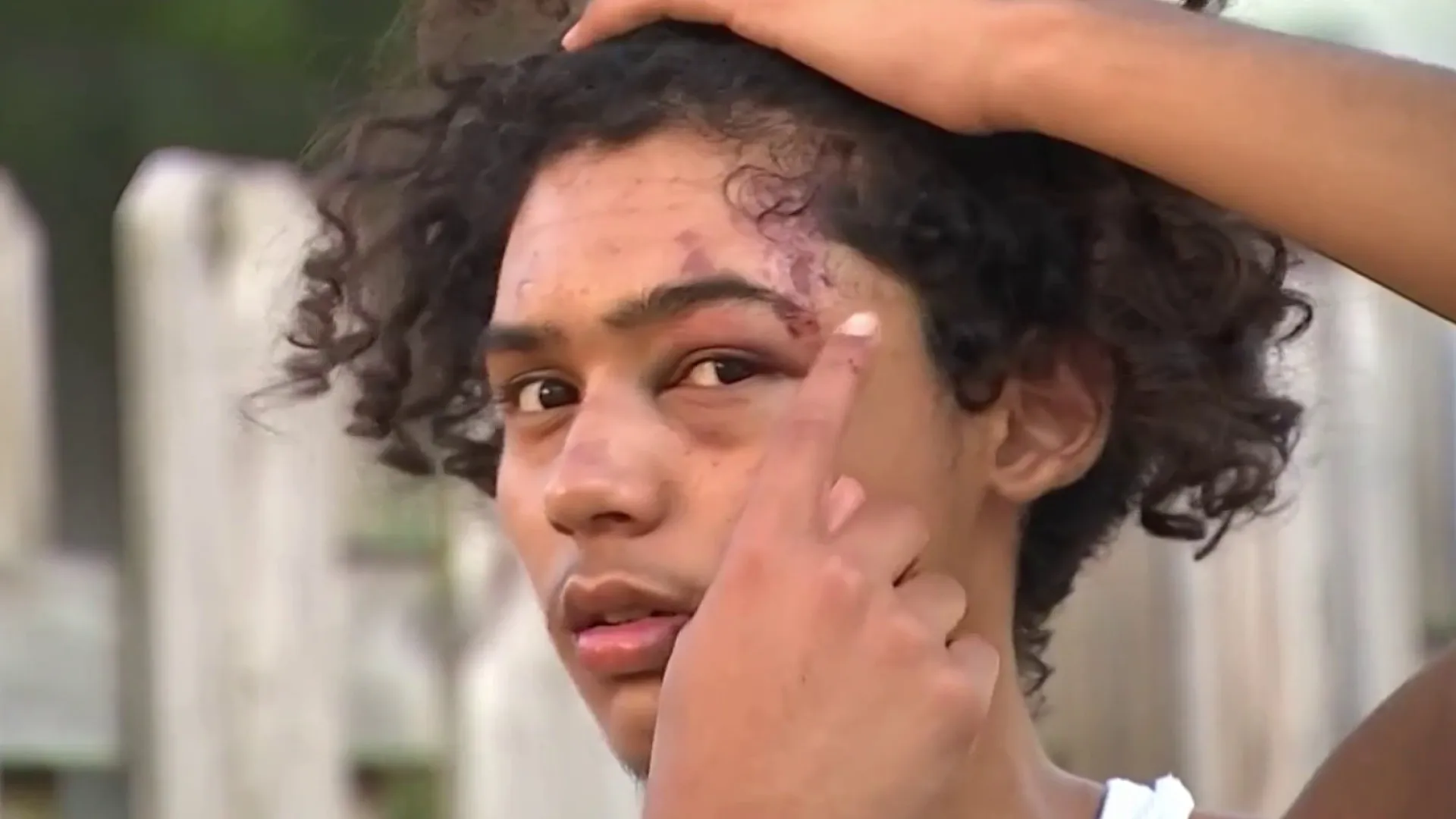Paddling in schools has been declining for years across the country and across Florida. But in north Florida it maintains a fast foothold in 20 public school districts and in uncounted private schools.
In 1988, one of the last years all Florida school districts allowed in-school spanking, 84,495 kids were physically punished in public schools. Just 20 years later, in 2008, only 4,869 students were struck in 30 of Florida's 67 school districts.
That number has fallen even more, to 2,996 kids in 2012, according to recent Florida Department of Education figures. Most of those paddlings were at schools in north Florida.
No one knows how many more kids got swats in private schools. They don't have to report it.
But sometimes corporal punishment seems to go too far, even to parents who believe that sparing the rod spoils the child.
Orri Jones is one of those parents. She thought she was doing the right thing when in October she gave permission for the principal at Joshua Christian Academy to paddle her fourth-grade son for yelling at a teacher. Last year when the principal paddled him, Jones said, the mild swats bruised her son's pride, not his backside.
This time it was different.
Local
Without Jones' knowledge, a male staffer hit her son twice with a wooden paddle. The boy cried later, complaining he was too sore to sit. Two days later, because he was still in pain, Jones took him to Memorial Hospital, where an emergency-room doctor noted a 6-inch-long, 3-inch-wide bruise on his butt shaped like a paddle.
Jones called police. Jacksonville Officer Lee A. Hendricks wrote in his report, "The injury appeared to be excessive for 'punishment.' "
No charges were filed. The school's principal, Alice Roberts, denies the school practices corporal punishment and says Jones' story is only "half true." She wouldn't say more.
Meanwhile, Jones feels guilt and anger, saying she didn't know that by picking a school that paddles she was putting her child in danger.
"You would have had to hit him with a lot of force to bring contusions on his bottom," Jones said. "There's got to be other ways to discipline kids."
Schools and educators have found many non-physical ways to discipline kids. Corporal punishment is no longer the norm in most of the nation's schools.
"It's considered a deplorable practice," said Linda Johnson, head of the Hendricks Day School, a private school that does not condone physical punishment.
Over the last three decades, dozens of child psychology and medical groups warned that spanking caused hidden physical and emotional damage to kids. During that same time period, the number and breadth of civil lawsuits against schools mushroomed.
Now 31 states ban all corporal punishment in public schools. Two states, New Jersey and Iowa, also ban it in private schools.
That leaves Florida, Georgia and 17 other states that allow corporal punishment in schools. Florida considers it a local school board matter, though districts have to report to the state instances of corporal punishment and other forms of discipline.
The most recent U.S. civil rights figures from 2006 show 223,190 U.S. students were legally hit in public schools, prompting about 20,000 to seek emergency medical treatment, according to the American Civil Liberties Union.
"It is disturbing and very embarrassing . that we still hit our students with wooden boards that are considered weapons by TSA (Transportation Security Administration) and in many statehouses," said Deborah Sendek, program director at the Center for Effective Discipline.
The center on its website links spanking to lower ACT scores, noting that in 2010, three-quarters of the 30 non-paddling states had higher-than-average ACT scores and nearly two-thirds of these states had above-average rates of improvement in scores over 18 years.
On the other hand, 75 percent of spanking states' students scored below average on the ACT and half had improvement rates falling short of the national average. Nine of the 10 lowest average scores were from paddling states.
In all, 98 of the nation's 100 largest school districts forbid corporal punishment at school, including Florida's six largest school districts, including Duval County.
Proponents of paddling say large school districts often struggle with student behavior and unflattering test scores and graduation rates, in part because teachers fail to manage classrooms and students lack discipline.
"My personal opinion: if we would go back to (spanking), a lot of the behavior in school would probably not be in the extreme state it's in," said Rev. Deryle Adkison, school administrator at Old Plank Christian Academy in Jacksonville, where he is the designated discipliner.
"You've got to have control in your classroom . or the learning environment will not be conducive to education. You see that in the public school system all the time."
He said he has spanked five kids since school started in August. He never hits them more than three times, but students don't want to be sent to this office.
Adkison added that paddling has to be done carefully and never in anger.
"If you holler and scream at the time of the discipline, that's not administering discipline," he said. "The child is going to view it as being beat up instead of being disciplined."
Part of the opposition to paddling comes from long-held fears that it is being imposed unfairly on disadvantaged students.
African-American students represent 17.13 percent of enrolled students but 35.67 percent of students receiving corporal punishment. And students with disabilities were only 14 percent of the school population but 19 percent of those receiving corporal punishment, according to an ACLU and Human Rights Watch report in 2009.
"Studies show that beatings can damage the trust between educator and student, corrode the educational environment, and leave the student unable to learn effectively, making it more likely that (the student) will drop out of school," the ACLU's report said.
Even proponents of paddling say that they limit how often it is used.
The frequency of in-school beatings in north Florida in 2011-12 ranged from 18 in Nassau County schools (0.16 percent of its 11,115 students) to 355 spankings at Washington County schools (10.29 percent of its 3,449 students).
It's rare even when it's allowed. Last year 13 children were paddled in Nassau schools, said Sharyl Wood, executive director of administrative services in the district.
"Generally, it's used when parents requested it," she said.
If corporal punishment were outlawed, "it would just take one thing off the table . but it wouldn't put a dent in our disciplinary arsenal." she said.
Recently, Nassau County conducted a public hearing on corporal punishment, but no one spoke up, she said.
Other supporters point out that parents and students who are given a choice of paddling or a suspension will often choose the quicker, albeit more painful, option.
In New Orleans, for instance, several hundred students, parents and alumni protested the elimination of corporal punishment at St. Augustine High, an all-boys Catholic school, in 2011. National church leaders said it was one of the last Catholic schools to still allow paddling; nationally the Catholic Church forbade it in schools. Last year the school gave in and adopted the no-swatting policy.
In recent years, bills that would ban corporal punishment have been introduced in Florida's Legislature and in Congress but did not go far



